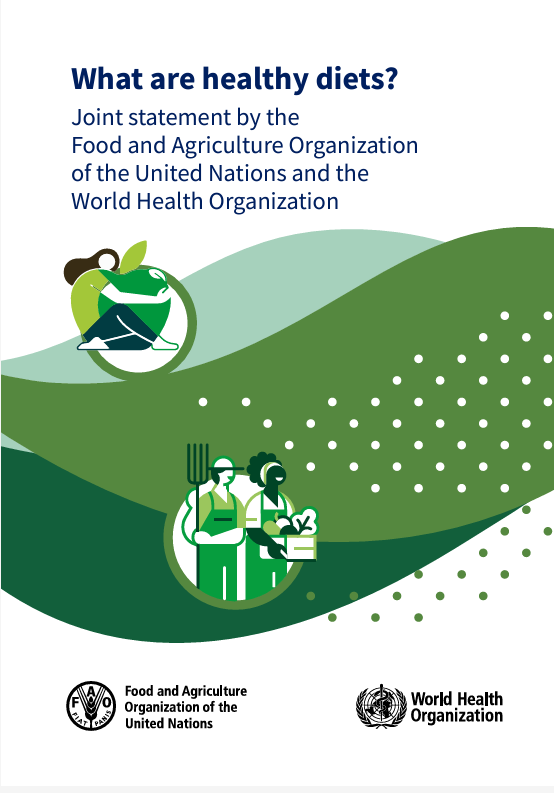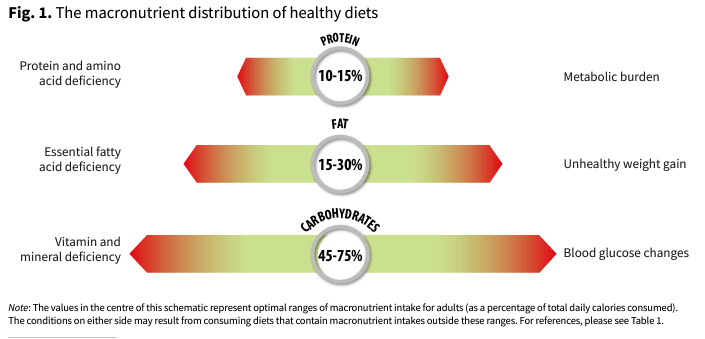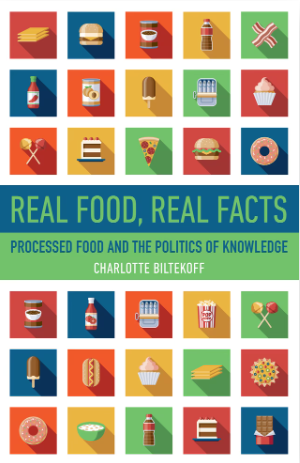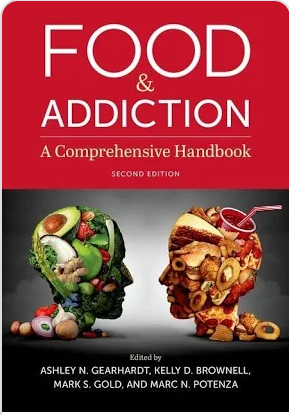This Week’s Report #2: WHO/FAO

What this is about:
Healthy diets promote health, growth and development, support active lifestyles, prevent nutrient deficiencies and excesses, communicable and noncommunicable diseases, foodborne diseases and promote wellbeing. The exact make-up of a diet will vary depending on individual characteristics, preferences and beliefs, cultural context, locally available foods and dietary customs. However, the basic principles of what constitutes healthy diets remain the same.
The guiding principles: Adequate, Balanced, Moderate, Diverse.
Here’s what they mean by Balance:

The actual guidelines are discussed under the Moderate principle.
- Sodium: restrict to 2 grams/d (5 g table salt)
- Sugars: restrict to 10% or less of daily calories.
- Saturated fat: restrict to 10% of calories, with no more than 1% from trans fat
FAO and WHO duck making a clear statement about the next two issues, although their implications are clear.
- Red and processed meat: even low levels may have negative health consequences
- Ultra-processed foods: these have negative health consequences
I wish they had stated these recommendations more clearly. Yes they are controversial with big industries lobbying against any suggestion to eat less of these foods, but these agencies, or at least WHO, should put public health first.
I recognize that these agencies have constituencies of nearly 200 countries, many with strong meat and ultra-processed food industries. I also recognize that the agencies have no power other than leadership to get any of those countries to do anything.
They at least stated what they thought. It’s up to country governments to take action. I hope they do.




